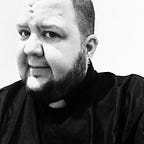As a long-time Unitarian Universalist and minister, I have spent hours recently countering racist harm perpetuated by my colleagues, leaders in this movement, and others in my faith community. I feel heartbroken and nearly out of hope that this faith I’ve served and loved has any chance of change. (The White Supremacy teach-ins happening in our congregations are the only thing keeping me holding on. Gratitude to Aisha Hauser, Kenny Wiley, Christina Rivera, and all the others who helped make them happen.)
There are so many things wrong that I hardly know where to begin. I hear people repeating (sometimes with the help of new, more contemporary language) the same racist tropes that were used to defend slavery, eugenics, Jim Crow, and mass incarceration. The same arguments that are used in an even uglier and more personal way to blame Black men and women for their own deaths, whether they be at the hands of self-proclaimed “neighborhood watch-ers” or the police.
There is always something wrong with the victim that makes them to blame for their own persecution and death.
Sometimes the victim-blaming comes in the form of pop culture racism like “What about Black-on-Black crime?” or “Everyone knows Blacks are more likely to use drugs.” There are no facts to back up these assertions, but that doesn’t seem to matter. Whole books are written and cited again and again that start from the (racist) premise that racism is either an old problem or an imaginary one and that the real problem lies with those who insist on believing and pointing out the ways it persists. We are quick — very quick — to blame anyone or anything but racism for issues that arise.
My fellow Unitarian Universalists have spent hours writing Facebook posts and comments that attempt to discredit anyone who points out the patterns of racism and white supremacy that they see. They seem willing to believe anything that will protect them from having to face that we have and have always had a problem with racism (not a “race problem”) in Unitarian Universalism.
Here’s the thing. Unitarian Universalists seem to have confused the inherent worth and dignity of every person with “all ideas are equal.” Or maybe we’ve confused the free and responsible search for truth and meaning with “you really can believe whatever you want around here.”
Some ideas do real harm. Some beliefs are not true. All sides of an argument are not equal. And when we treat them as if they are, we hurt real people. Our faith calls us to weigh both the truth of an idea and its effects in the world. We cannot ethically accept an argument that denies the dignity and worth of even one person. We cannot accept arguments that are based on alternative facts and secret evidence. We can’t be intellectually or ethically lazy.
Whether we like it or not, our faith is not immune to (and was in fact, a part of creating and sustaining) the culture of racist imperialism in this nation. In 1850, when news of the passage of the Fugitive Slave Act reached many towns, churches tolled their bells in lament and resistance. William Lloyd Garrison’s Liberator reported that the bells of the Congregational, Methodist, and Universalist churches in Waltham tolled in protest, adding sarcastically: “The bell on the Unitarian Church being clogged with cotton would not sound.”
In the past few weeks, when I’ve seen post after post and literally hundreds of comments defending the status quo and attacking those who would change it, I think of those bells. It seems we still have a lot wrapped up in keeping the bells of freedom and justice quiet so they don’t disturb us.
I wonder what would happen — and even if it’s possible — for us to finally allow our hearts, our congregations, and our systems to change. Can we be that radical, cutting out the root of racism and see what could grow there instead? Can we finally commit ourselves to the worth and dignity of every person and stop pretending that freedom of thought gives us permission to entertain arguments that do real harm to real people?
I don’t know. Our history and habits are against us. The resistance within our communities and perhaps in our own hearts is strong. We would have to find the courage to face years of conflict. We would have to center new voices and raise up new leaders. We’d have to shift our focus from the passion for individual intellectual freedom to a commitment to the common good. We would have to be willing to be held accountable and to hold others accountable to a deeper understanding of our principles. We’d have to change radically, to let go of staying who we have been and become something new. We would have to be transformed.
